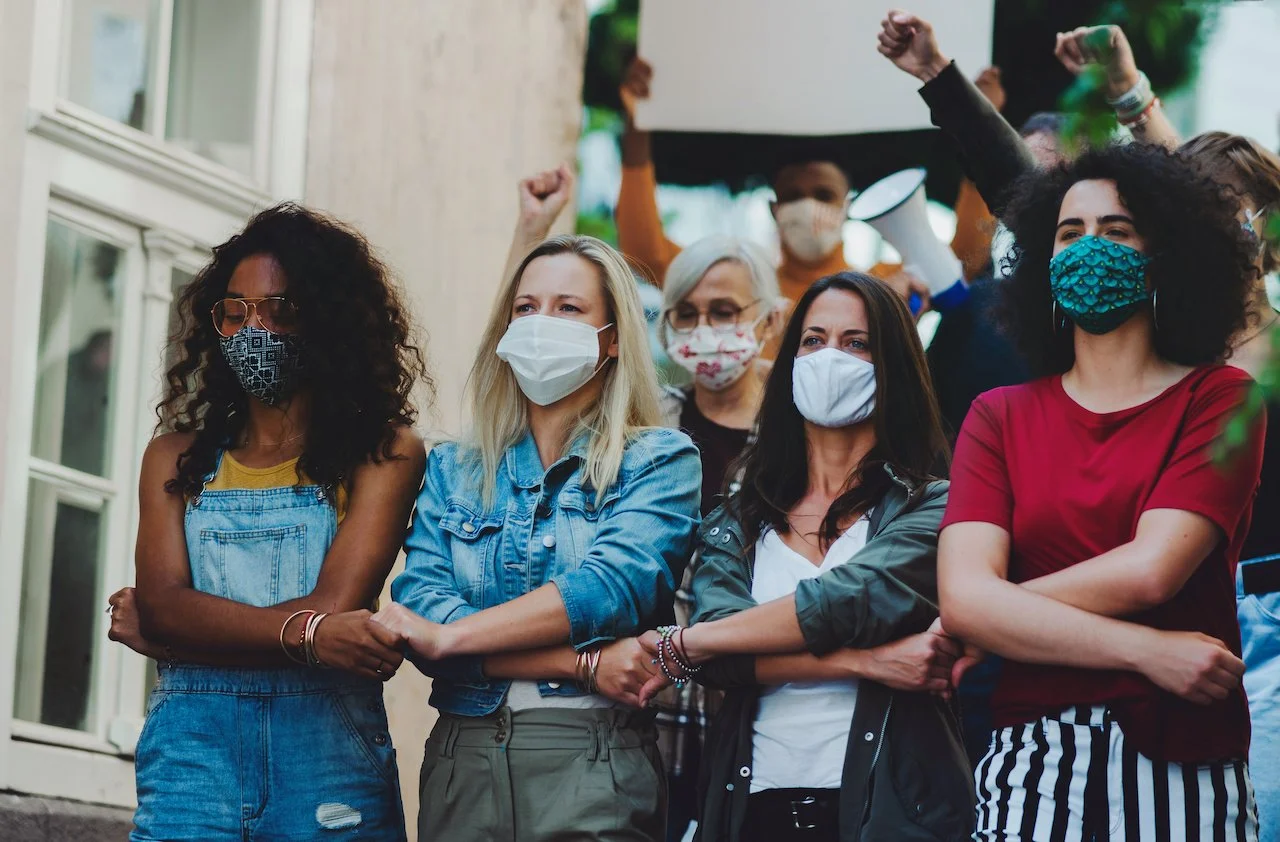ECONOMIC EQUALITY AFTER THE OVERTURN OF ROE V. WADE
BYDONNICA HAWES-SAUNDERS

W
omen have fought for equal voice and influence since at least the mid-19th century. The Homestead Act of 1862 was the first law of many that provided opportunities for women, married or single, to gain financial independence with an opportunity for ownership of land previously owned by the government. Fast-forward to 34 years ago, The Women's Business Ownership Act of 1988, gave women the freedom to take out business loans without receiving a male co-signer's signature. In the 21century, women have continued to make significant progress toward economic empowerment through legislation, public policy, and political involvement. However, there remains much to do before true economic freedom is achieved, including full and equitable agency over our lives.
The gap between how much money men and women are paid has long been a feature of the U.S. economy. While the pay differential has narrowed since the 1960s, progress seems to have slowed in the past decade or more—a dynamic that has significant implications for women’s financial security and wellbeing. According to The American Association of University Women, today, when comparing women to men in the workforce, women will earn on average 82 cents for every dollar earned by men, a figure that remains the same as the statistics in 2021. When race and ethnicity are added to the equation, the wage gap widens further. This is important because lower pay contributes to lower lifetime earnings, wealth, and expands into other disparities. For example, individuals who are facing income and wealth inequalities are impacted by power imbalances that compromise their basic human rights—access to healthcare, education, housing, and other necessities that are emblematic of economic and social freedom. In addition, less wealth compromises fair access to justice and political representation.
Three months ago, women’s journey to economic freedom received another barrier. The U.S. Supreme Court released a decision in Dobbs v. Jackson Women’s Health Organization, upholding the constitutionality of a 2018 Mississippi law banning abortion after 15 weeks of pregnancy. The court also ruled 5-4 to overturn Roe v. Wade, a 1973 decision that protects pregnant people’s right to privacy without excessive government restriction. This decision is devasting for women’s rights. Women and doctors will risk prosecution when traveling for abortion care. Doctors in certain states will be afraid to treat ongoing miscarriages or ectopic pregnancies, so women will suffer and die from those conditions when they could have been treated and saved. In countries where abortion bans are in place, abortions have not decreased, but the number of unsafe abortions has increased, especially among those who are economically disadvantaged. Roe's fall will have a strong economic impact on women in the 26 states that are likely to implement laws that ban abortion, as they already face lower wages, worker power, and access to health. Women with higher economic standing will have the privilege to travel to another state to receive care, yet those who cannot afford to travel will be forced to abide by the ruling of their State.
If our society will evolve to one in which women can enjoy true economic equality, which includes control over our own bodies, then a stronger economy will emerge. When more women work, economies grow. In addition, the history of feminism is a powerful one—the concept of a woman being able to vote in the U.S. used to be unthinkable. Today, women can vote, own their own businesses, and work for pay. Although there is still much to do and despite recent setbacks to access to healthcare, women have been gaining ground toward economic freedom in these modern days. Individual freedom, pay equality, and political participation are not just vital in developing equal opportunities for women in broader society—a healthier, wealthier, more sustainable future depends on it.
“Women belong in all places where decisions are being made.”
– Ruth Bader Ginsburg


